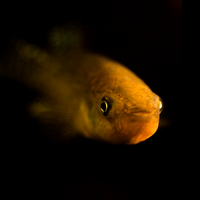species

Infographic: A Look at the Big Five Mass Extinctions
Katarina Zimmer | Jul 18, 2022 | 4 min read
Extinction is a natural part of life on Earth. But occasionally, extinction rates have surged far beyond usual levels, driving mass extinction events that have reshaped the trajectory of life.

More Than 9,000 Tree Species Await Scientific Description
Christie Wilcox, PhD | Feb 1, 2022 | 2 min read
A new study of tree biodiversity estimates that Earth boasts 14 percent more tree species than previous efforts have identified.

Researchers Identify Novel Long-Tongued Fly Species
Nick Dall | Feb 1, 2022 | 4 min read
The discovery that what was long believed to be one fly species is actually two deepens researchers’ understanding of plant-pollinator relationships in a unique habitat in southern Africa.

African, Arabian Mammals Didn’t Escape Grande Coupure Extinction
Chloe Tenn | Nov 8, 2021 | 2 min read
More than two-thirds of mammals in Africa and the Arabian Peninsula went extinct during the Eocene-Oligocene transition some 30 million years ago, a study finds.

Aquarium Jellyfish Turns Out to Be Undescribed Species
Lisa Winter | Jun 18, 2021 | 2 min read
The newly characterized “elegant jellyfish,” roughly the size of a human hand, had been on display in two aquariums in Japan for more than a decade.

Whole-Genome Data Point to Four Species of Giraffe
Ruth Williams | May 6, 2021 | 4 min read
The genome sequences of 51 giraffes from all over Africa contribute to the latest attempt in an ongoing pursuit to pin down a species number.

Sponge Names for Sale, Proceeds to go to Conservation Efforts
Asher Jones | May 1, 2021 | 5 min read
A tidy-up of a New Zealand storage room led to the sale of naming rights for three new-to-science Galápagos Islands species.

Infographic: Animals of Different Species Hybridize
Ashley Yeager | May 1, 2021 | 2 min read
The offspring of crosses between related species can sometimes fill a new environmental niche, and such hybridizations may even lead to speciation.

Researchers Propose Automating the Naming of Novel Microbes
Jef Akst | Mar 1, 2021 | 5 min read
With modern technologies unearthing novel bacterial and archaeal species by the dozens, hundreds, or even thousands, manually naming them all is no longer practical, scientists say.

Biologist Lynika Strozier Dies
Claire Jarvis | Jun 18, 2020 | 3 min read
The Field Museum researcher and biology instructor, who died of complications associated with COVID-19, used DNA sequencing to identify new species of plants and birds.

Slideshow: Images from The World Beneath
Richard Smith | Nov 5, 2019 | 2 min read
See a world of undersea splendor through the lens of Richard Smith.

Trump Administration Weakens Endangered Species Protections
Ashley Yeager | Aug 13, 2019 | 2 min read
Enforcement of the Endangered Species Act will be altered, easing protections for the most critically threatened plants and animals.

Killifish Survive Polluted Waters Thanks to Genes from Another Fish
Emma Yasinski | May 6, 2019 | 4 min read
Gulf killifish have made a stunning comeback in Houston with the help of genetic mutations imported from interspecies mating with Atlantic killifish.

Frog-Killing Chytrid Fungus Far Deadlier than Scientists Realized
Carolyn Wilke | Mar 29, 2019 | 2 min read
A survey reveals the disease has decimated populations in Central and South America and tropical Australia and contributed to the extinction of 90 species.

Scientists Push for a Moratorium on Human Germline Editing
Ashley Yeager | Mar 13, 2019 | 3 min read
After the reported birth of CRISPRed babies in China, experts want to take time to consider the scientific, social, ethical, and philosophical consequences of editing heritable human DNA.

Mysterious Killer Whales Observed off Chilean Coast
Carolyn Wilke | Mar 8, 2019 | 2 min read
These Type D killer whales have blunter heads and a different color pattern than other orcas. A new species designation hinges on the results of genetic testing.

Tortoise Not Seen for 113 Years Found on Galapagos Island
Carolyn Wilke | Feb 25, 2019 | 1 min read
Chelonoidis phantasticus, or the Fernandina giant tortoise, was feared extinct until an expedition found a lone female in a remote area on the island of Fernandina.

Image of the Day: Seeing is Bee-lieving
Carolyn Wilke | Feb 22, 2019 | 1 min read
Four decades after it was thought to have disappeared in the wild, scientists have found a single female Wallace’s giant bee in Indonesia.

New Global Trade Route Could Shuttle Invasive Species
K.V. Venkatasubramanian | Feb 19, 2019 | 3 min read
China’s ongoing Belt and Road Initiative passes through areas that are already at risk of swapping organisms.
